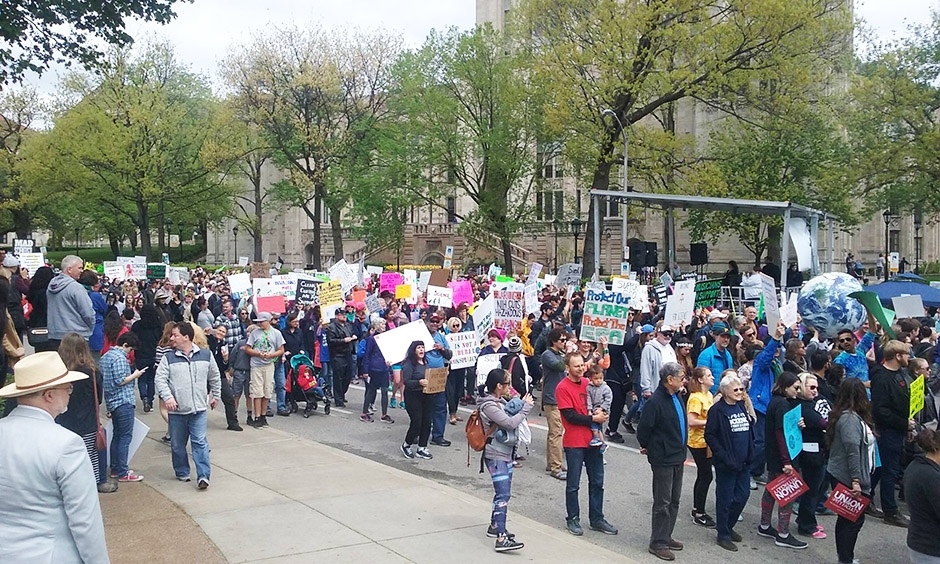02/07/2019
By Alexander Wolfe | Staff Columnist
“When you have power, people try to take it from you always,” said Lynne Cheney to her husband Dick while the two sat and puzzled about the man’s political future. At least, according to Vice director and writer Adam McKay.
For those people who closely monitor executive activity, the warnings raised by one of last year’s Golden Globe nominated dramas are nothing new. The theory of the unitary executive has existed in Washington since the nations inception, both Federalists and Anti-Federalists alike are on the record endorsing some aspects of the unitary executive, and the concept is attractive in its both simplicity and its efficiency.
The theory itself holds that the president possesses the power to control the executive branch in its entirety. Its ideals are rooted in Article 2 of the Constitution, which vests “executive power” in the hands of the president. The president’s explicit job as chief executive is to execute the laws. Most of us have taken civics, but it bears repeating: What does that exactly mean?
Depending on which constitutional scholar you ask, this can be interpreted to say the president has no political duty, just an executive duty. Or, that the president is responsible for performing whatever duty is necessary to uphold the laws. It is this interpretation that is closer to Dick Cheney’s use of the theory of the unitary executive.
Thankfully, many American presidents have opted to comply with executive precedent, choosing not to deviate from the powers of their predecessors. There are however, those presidents who used their power in new and sweeping ways, which fundamentally changed the way the government and the country operated.
Theodore Roosevelt inserted himself into international negotiations between Japan and Russia, winning a Nobel Peace Prize, but doing so for no direct reason. Roosevelt just decided to add three extra Supreme Court justices because the current six threatened to rule his proposed legislation unconstitutional.
The first notable expansion of executive power came under Presidents Lyndon B. Johnson and Richard Nixon, when both presidents maintained the deployment of U.S. troops in Vietnam despite the lack of a congressional declaration of war. This prompted the 1973 War Powers Act, which garnered such bipartisan support that both the House and the Senate were able to override Nixon’s veto.
After Gerald Ford, Carter, Reagan, H.W. Bush, Clinton, Bush and Obama have all expanded executive power in new ways, all to the dismay of a shrinking group of constitutional scholars warning about the dangers of executive power.
“But President Obama wouldn’t have done anything he didn’t need to” say MSNBC commentators pleading to Chris Hayes. “Trump has done things that are so much worse!”
By the same token, Fox News pundits assert that President Trump has only operated within the confines of presidential precedent set by Obama. At the end of the day, there seems to be an exponentially increasing expansion of executive power. President Obama’s drone strike authority was ridiculous, see the letter written by Eric Holder not conforming to Senator Rand Paul that drones could not be used against a U.S. citizen, and President Trump seems to be about to build himself a wall via national emergency powers, see Sean Hannity’s remarks as the president’s personal oracle.
Executive power is horribly tempting, but it needs to exist to enable the president to deal with actual crises. Unfortunately, discussions on how to limit executive overreach have existed on whichever side of the political aisle isn’t in power. President Obama quietly mentioned its danger as he was set to leave office, but we can’t expect executive power to be limited by the person who stands to gain the most from its expansion.
The country broke ties with one absolute executive a couple weeks ago, that person being Nicolas Maduro of Venezuela. We should perhaps investigate why the differences between both nations are so stark, and how our traditional aversion to sweeping presidential authority has led the nation to be so successful.



